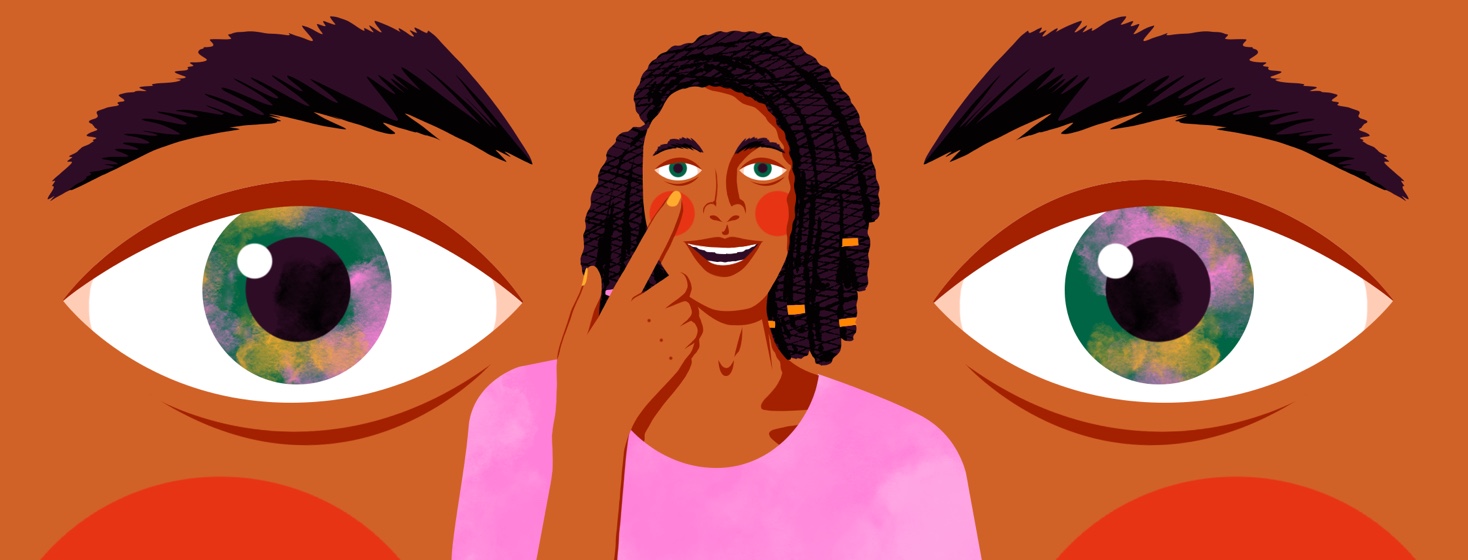The Benefits of Sharing the Way 'Eye' See It
Recently I have written some highly personal articles. As one of my favorite pastors, Mike Todd, would say, writing these articles has required me to be “H.O.T” (humble, open, and transparent).
Humble, open, and transparent about vision loss
I have been H.O.T. about how my vision impacts each of my identities, activities of daily living, and the array of emotions that I often experience living with Stargardts.
Visual impairment and pity
The irony is that for the majority of my life I was reluctant to share the way eye see it because I did not want people to treat me differently. The more that I unpack the way eye see it the more I realize that it is not that I do not want people to treat me differently, it is that I do not want people to pity me. Yet, those are two completely different concepts.
In my opinion, pity looks like: “Oh poor Christine. So sorry you have Stargardts... let me take care of you”. The story I tell myself is that if people pity me, they probably think that I am not independent. The way I have to show up in this world, literally and figuratively, looks completely different compared to my counterparts but that’s okay.
Asking for help with vision loss
There are accommodations that I put in place in order to be successful. Growing up I was reluctant to ask for help because I thought people would think that I was inadequate; now asking for help feels much more comfortable and sharing about the help I need via this platform almost feels like second nature.
Growing up I often heard the phrase “closed mouths don’t get fed." I feel like such is true with accommodations. My support system didn’t know how to best support me until I shared with them the accommodations that I needed. As a result, there are things that my support system does differently for me, but it’s out of compassion and love – not pity.
How my friends support me
Below are three examples of how my friends have supported me once I shared with them the way eye see it.
- Finding the perfect devices
- Greetings can be a challenge
- Playing games with larger fonts
My friend Melanie surprised me with a device that I am able to hover over the words in a book and it will read it aloud to my son. She said she had no idea that was something I struggled with until I shared my experience in my recent article. After she read the article, she knew just how to support me in a way that was so empowering.
In college, people would greet me from what felt like far away; Regardless, the distance made it so I was unable to identify who was speaking to me. My friend, Taylor, decided whenever she would see me she would raise her hand and say, “Hey it’s me, Taylor." That worked out so well for us. Honestly, I kind of wish more people caught on.
My friend Caitlin surprised me with a pack of large print playing cards from her Gi-Gi. When Caitlin visited she read to TJ and helped me unpack some of my feelings for the way eye see it on the topic. Therefore, when thinking of a fun at-home activity TJ and I could play together, she made sure the cards accommodated my vision so I could play with my son easier. The timing couldn’t have been more perfect because as she was preparing to mail them to me, I was on my girls’ weekend playing card games.
At the current moment, these are the three incidences that stick out the most to me. However, there have been countless acts of kindness, advocacy,, and thoughtful actions around accommodations that my friends and loved ones have shown since I began to share the way eye see it. Most people want to help you, you just have to show them how... at least that’s the way eye see it.

Join the conversation